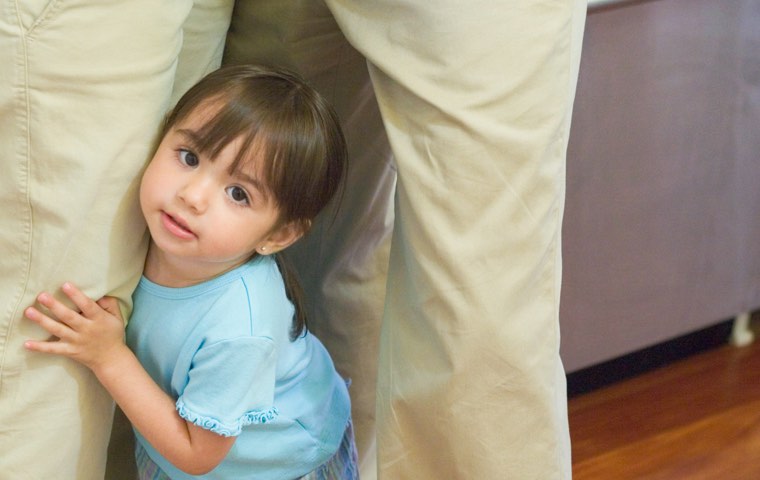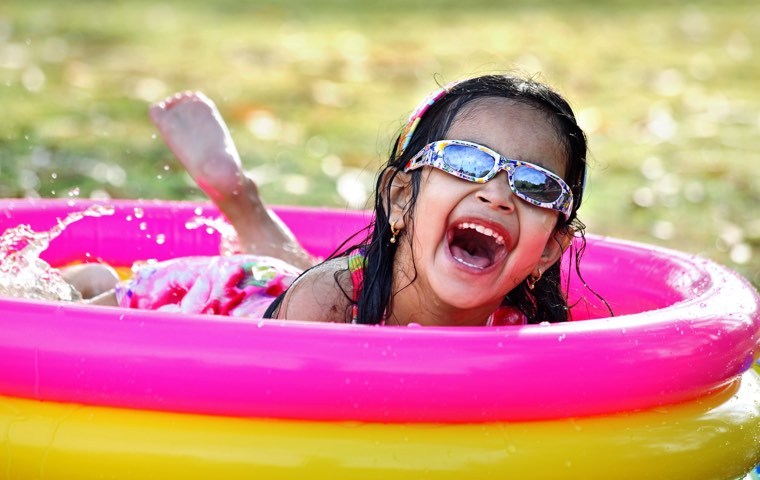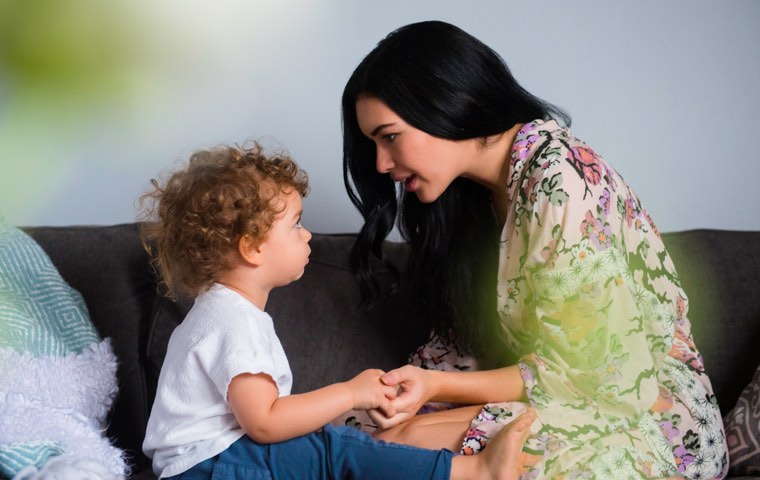You just got a call that your toddler bit a playmate in day care. And your mind starts racing with questions: Are both kids okay? Why would my child bite anyone? Have I done something wrong? Is something wrong with him (or her)? Should I be worried?
Relax and take a deep breath. Biting is a developmentally normal behavior for toddlers. Children who bite are not destined to have problems later on. Parents should not be embarrassed if their child bites. However, toddler biting needs to be handled promptly and appropriately to help ensure the behavior stops.
Young children are exploring the world, learning how to relate to other people, and figuring out how to express themselves. Understand what causes toddler biting can help you respond effectively.
Why do Toddlers Bite?
There are many reasons why toddlers bite, but they generally fall into one of four categories:
Experimental Biting
Experimental biting happens when curious infants and toddlers explore their world by putting things in their mouth. Sometimes they chomp down on a person in the process. They may bite by accident or intentionally to see what will happen.
Frustration Biting
Frustration biting occurs when children can't cope with the situation they are in. Examples include wanting a toy another child has, being overwhelmed by people or activity, or simply being bored by what they are doing. Hitting or biting are common coping techniques for toddlers who are not yet able to express their feelings with words instead of actions.
Powerless Biting
Powerless biting happens when toddlers feel ignored or want attention. For example, the youngest child in a group may bite when he feels picked on or left out by older children. Some toddlers bite to get adults to pay attention to them. Even negative attention may feel like a reward.
Stressful biting
Stressful biting is a sign of a child's emotional state. Toddlers may bite when they are tired, upset, angry, or uncomfortable (such as when they are teething).
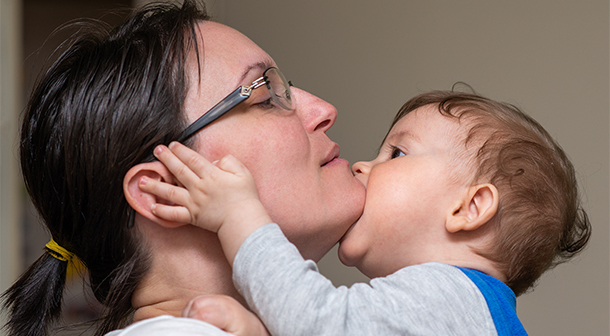
5 Steps to Take When Your Toddler Bites
Toddler biting can be painful and scary for the children who are involved, as well as for adults who witness it. The first and immediate step is to separate the children. After that, here are five steps to take when a toddler bites.
-
Address the child who bites.
When your toddler bites, you might feel frustrated, mad, annoyed, embarrassed, or worried. All of these feelings are normal but do your best to remain calm as you address your child. In a strong, firm voice say: “No biting. Biting hurts.” Keep it simple and easy for a toddler to understand.
-
Comfort the child who was bitten.
Take care of the child's physical needs, such as cleaning and dressing the bite if necessary, as well as showing sympathy and compassion for his pain. In many cases, the child who was bitten is more scared than hurt. However, a toddler's sharp teeth can break the skin and on occasion may require medical attention.
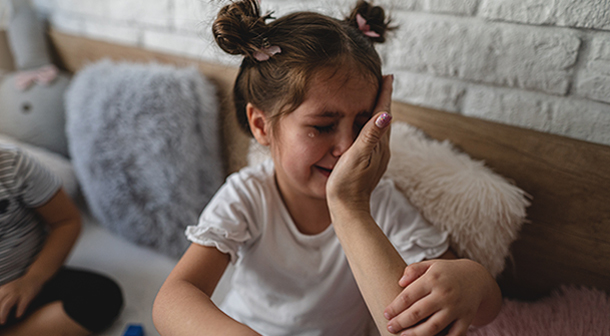
-
Address the child who bit a second time.
Toddlers often don't know they are causing pain when they bite so it is okay to comfort the child who bit. The toddler who did the biting may even want to comfort the child he bit. Just be careful not to reinforce the behavior by giving too much attention to the child who is biting.
-
Teach.
Once the situation is calmer, take the opportunity to teach your toddler other ways to deal with frustrating situations. You can tell him to use his words instead of biting. He can say things like “no,” “stop,” or “I don't like that” to communicate with others.
-
Redirect.
Most toddlers can be easily distracted with a different activity or toy. Try walking with your child to another room or going outside for a few minutes. Offer him a different toy or book or find a new activity.
Child psychologists recommend...
These two strategies work well to stop toddler biting:
- Don't focus on the negative by punishing, shaming, or embarrassing a child who bites.
- Instead, respond calmly, clearly, and consistently to help him learn how to express himself without biting.
“No Biting. Biting Hurts.”
All parents want their homes to be a bite-free environment. So it is important to consistently enforce the “no biting” rule.
Practice using “No biting. Biting hurts.” when a toddler bites, or when you see a situation where biting may happen. Keep your voice calm and firm so your child knows you are in control. Using the same words over and over will remind him that biting is not okay.

And remember, learning a new behavior takes time, so keep up the reminders. Praise him for good behavior, such as using his words or sharing a toy. Positive reinforcement is one of the best ways to help children learn and remember new skills.
Things to Avoid When a Child Bites
Shaming or punishing a child does not stop him from biting, but it can increase his fear and worry - which can actually increase biting. If you have trouble redirecting a child who bites, you may want to try a brief time out. Place your child in a quiet spot where you can still see him. As a general rule, your child should stay in time out about 1 minute for each year of his age. If your toddler is 2 years old, he would stay in time out for 2 minutes. Longer timeouts are not effective for young children.
Some think biting a toddler back will teach him not to bite, but the opposite is true. Child psychologists agree that biting a child to show him how much it hurts does not stop him from biting. However, it does teach him that it's okay to bite people when you are upset or angry.
Need parenting help now?
The Texas Parent Helpline is available 24/7.
- Call 833-680-0611
- Chat with us
- Text 833-680-0611
How to Stop a Toddler from Biting
Watch your child as he plays with others and pay attention when a bite occurs. This could help you understand why your child is biting. Consider:
- What was going on right before the bite?
- What was your child doing?
- Who was he playing with?
- Who did he bite? Is it always the same child, or a different child each time?
- Where was your child?
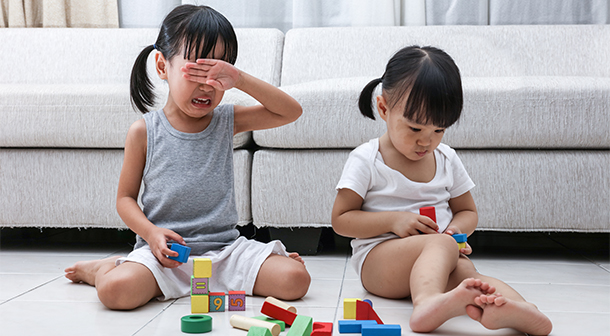
By answering these questions, you may be able to find a pattern or learn why your child gets upset.
When you see signs that he might be close to biting, try these tips:
Distract him with a toy or book or walk with him to another room or outside.
This can help reduce the tension and shift his attention.
Give your child ways to respond that don't include biting.
Teach your child to use words to express his needs and feelings, for example: “I want that toy” or “I don't like that.” This will help him communicate with other children and adults. You can also help him identify his feelings and figure out how to handle them without biting. For example, you might say: “I can tell you are feeling upset. When I'm upset, sometimes I like to hug my blankie. Do you want to hug your blankie?”
Give him things to bite.
If you think your child might be biting due to a need for oral stimulation, offer him something to bite and chew safely, for example, a snack or a teether.
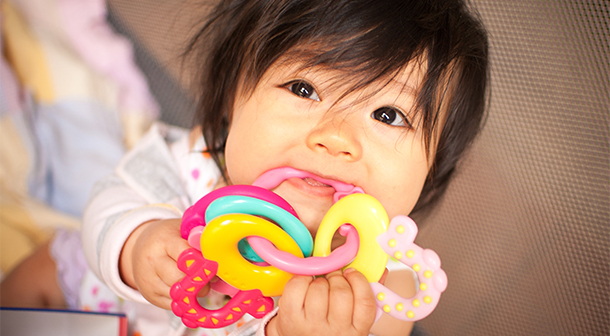
Find ways to stop a toddler from biting by trying some of these tips.
Plan ahead.
Toddlers may be more comfortable if they know what to expect in new situations or around new people. Tell him where you are going and answer questions to help him feel more confident.
Give positive reinforcement.
Make it a point to praise your child's good behavior. Use simple statements such as “I like how you are playing gently,” or “You are doing a good job using your words” to reinforce alternatives to toddler biting.
Teach ways to share.
Sharing is one of the most common causes of kid biting. Help your child understand the rules of sharing and praise him for taking turns with a toy. You might try setting a timer to give each child time to play with a toy before they swap. Be sure to praise each child when they share. Young children love to know when they do something right.
Read books with him about biting.
Reading with your child has many benefits. Books about biting can help him learn better ways to act when he gets upset. You might try books like:
- Teeth Are Not for Biting by Elizabeth Verdick
- No Biting by Karen Katz
- No Biting, Louise by Margie Palatini
How to Work with Caregivers
Toddler biting is common in day care centers, and biting is a common reason for a young child to be removed from day care. The issue of biting is challenging for parents and caregivers. Here are some ways you can work with caregivers to address and prevent toddler biting.
Review the biting policy.
The day care center should have a written policy about how it handles biting. Look for specific information about how caregivers deal with children who bite and children who are bitten. For example, find out whether children who bite are punished or sent home, which can reinforce biting instead of preventing it. A better policy is one where the caregiver separates the children, immediately tends to each child, and notifies the parents. Review the policy so you know what to expect if your child is involved in a biting incident.
Keep to a good routine.
The day care center should have a standard routine for meals, naps, and playtime to help children feel secure and cared for. Routines at home are also important, so make sure your toddler gets a good night's sleep. Toddlers who are overly tired or stressed are more likely to bite at day care.
Keep the lines of communication open.
Get to know your child's caregivers and communicate regularly through text, email, or chat at the day care. Let them know if your child is especially tired, teething, or having a bad day, which may make biting more likely. If your child is biting, ask the caregiver to let you know about any behaviors that make him more likely to bite. For example, does he bite when another child takes his toy? Is the same child always involved, or is it a different child each time? You and the caregivers can work together so your toddler knows the rules are the same at home and day care.
If biting becomes a problem, consider spending some time in class to watch your child and step in before he bites. You might also find that long-term biting is a sign the day care may not be right for your child. It may be too structured, or not structured enough. There may be too many other kids in the room for him to feel comfortable. Remember, the day care may do everything right and still not be the right place for your child.
When to Get Help
Biting is common behavior for infants and toddlers and usually stops by the time children are 3 to 3 ½ years old. If your child continues to bite or begins to show aggressive behaviors like hitting, talk to your pediatrician. His doctor may suggest that you meet with a child development specialist. Child development specialists can help you identify the reason for the behavior and develop ways to address it.
Remember, there is no quick fix, but with consistent help your child will eventually learn to use other ways to express his feelings and find playtime to be a fun time.


